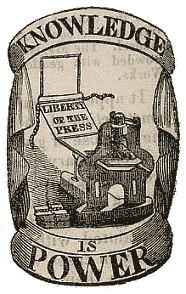



"To announce that there must be no criticism of the president, or that we are to stand by the president right or wrong, is not only unpatriotic and servile, but is morally treasonable to the American public." Teddy Roosevelt
THERE IS NO GOOD REASON WHY THE AMERICAN TAXPAYER SHOULD HAVE TO BEAR THE BURDEN OF THE BAIL-OUT OF THE AUTO WORKERS UNION IN Michigan!
The Democrats like "lying Harry Reid" would like you to think that the bail out is to save an industry, and in a way it is partially that, but the main reason Reid, Pelosi and the Congressional Democrats are pushing so hard for the billions for the Auto industry salvage. Is to save the Union that helped delivered the House, Senate and White House to the Democrats on Novemeber 4th.
If they get away with this rip-off. They will follow with a long list of bail outs for other industrial Unions that helped get the big prize last time we voted.
Not many people realize the exorbitant wages that Union Auto workers get to make a product that has built in obsolescence.
Is it right to tax the average worker making $28.50 to bailout workers whose labor cost is over $73 an hour?” Perry asked.
He explained that in 2006, widely available industry and Labor Department statistics placed the average labor cost for UAW-represented workers at the former DaimlerChrysler at $75.86 per hour. For Ford it was $70.51, he said, and for General Motors it was $73.26.
“That includes the hourly pay, plus the benefits they’re receiving and all the other costs to General Motors, Ford and Chrysler, including legacy costs – retirement costs, pensions, and so on – so it’s looking at the total labor costs per hour worked for workers,” Perry said.
For U.S. workers at Toyota, however, the per hour labor cost is around $47.60, around $43 for Honda and around $42 for Nissan, Perry added, for an average of around $44.
“So we’re looking at somewhere around a $29 per hour pay gap between the Big Three and the foreign transplants that are producing cars in the United States,” Perry, chairman of the economics department, told CNSNews.com. Source:CNS News.com
If you annualized Chrysler’s labor cost of $75.86 an hour per worker over a 35-hour week, for 50-weeks a year, the yearly compensation comes in at almost $133,000 per worker per year.
“The question is, where do you stop? Would this just be a down payment on a continuing bailout that they would need in the future?” he asked.
“Once we’re in for $25 billion, or $50 billion, it’s going to be a lot easier for them to ask for more money later,” If we want this particular industry to be competitive and survive for the next decade or more, they really have to get their labor costs in line with reality and the global marketplace.
It is time for the production to shift towards companies that have lower labor costs; that are more efficient and more productive. Even if that wasn’t production that took place in Michigan by United Auto Workers, it would still be production that would take place somewhere in the U.S. economy. So we would still have a large number of jobs tied to the auto industry.
Historically, one of the strengths of the U.S. economy has been its willingness to let inefficient firms fail and redeploy those resources – money, but also people – to new and potentially more successful businesses. I think that has always been one of the distinctive strengths of the U.S. economy. Write, call, email or telegraph your Congress person to vote no on this political pay off!








No comments:
Post a Comment